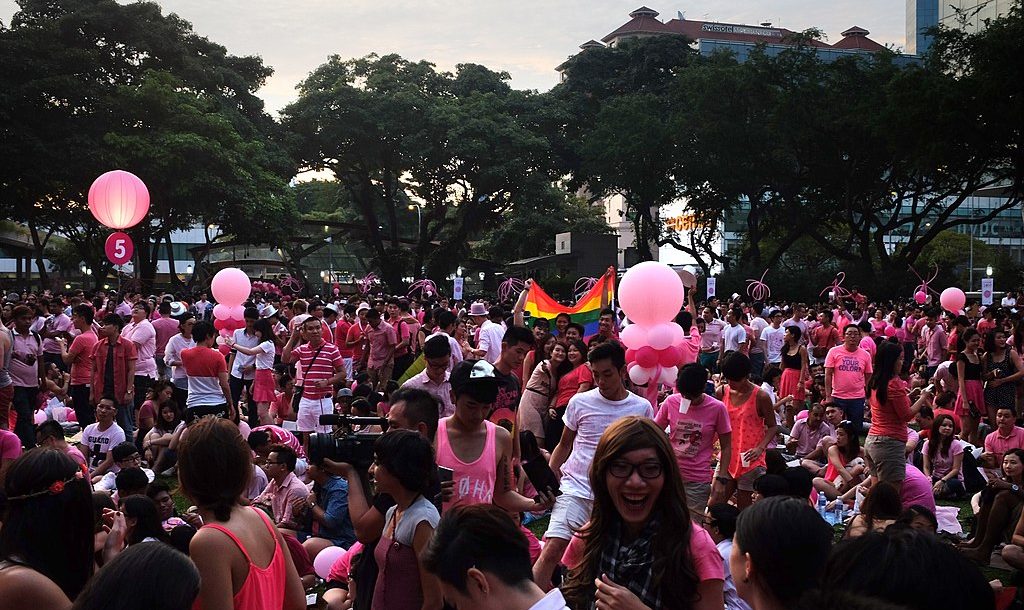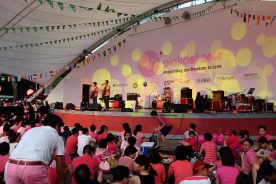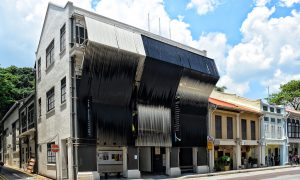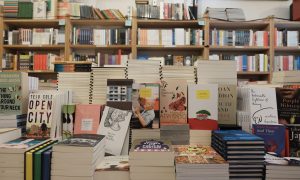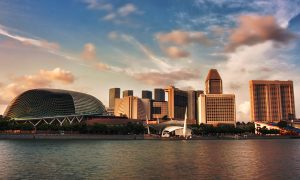Much has been written by academics and journalists about queerness and queer activism in Singapore, as well as groups who oppose it. These accounts form a picture of polarisation. I questioned this portrayal, as I was aware of people who did not consider themselves activists or, at least, participants of Singapore’s queer activism.
Constituting a silence in-between, such individuals challenge the conventional wisdom about a gulf between Singapore’s LGBTQ+ movement and those against it. How we interpret their positions is a relevant question amidst shifting state discourses about Section 377A, the return of Pink Dot post-pandemic, and surveys and rhetoric about differing viewpoints.
On a broader level, this question is salient today where societies are often described as polarising, neglecting what has been termed ‘silent majorities’, constituting political identities and subjectivities that choose to be silent for various reasons. The disaffected are often written about as passive and non-political – one that is frustrating to those who regard political voice and participation as visible, necessary for change and a civic duty.
Where there are limitations to silence, my conversations revealed how it is not concomitant with consent. While not immediately obvious as resistance, silence has a communicative dimension that does not necessarily convey approval. Silence can be a choice, and one that demonstrates an array of political calculations, expressions of selfhood and economic agencies that exceed any measure of passivity.
‘What’s the point?’
From June 2018 to May 2019, I sat in cafes, hawker centres and void decks, with fifty individuals in Singapore who identified as non-heterosexual. Contrary to the view that silence indicates apathy, the individuals I spoke with — while politically aware to varying degrees — were aware of their rights and the inequalities between themselves and heterosexual citizens. These refer to Singapore’s heteronormative policy framework that negatively impacts family, healthcare and housing policies, limits wider access to resources and minimises the status of homosexuality in Singapore.
A sense of fatalism affected decisions to campaign for change. Singapore’s state of affairs was seen as unlikely to change regardless of action taken. One argued there was ‘no point even having Pink Dot,’ questioning the realistic objectives of the movement. When asked what they felt about the potentials of queer activism in Singapore, many referred to the dominance of the PAP, which they see as a roadblock to policy and societal change.
...with persistent advocacy outside of the courts and increased social acceptance...it is possible for the ideal family unit to expand beyond heterosexual norms.
The pursuit of communitarianism at the expense of true harmony
This view is compounded by a certain resignation that the incumbent government ‘cannot afford to offend the “rightist right”’, a catch-all term used to refer to conservative secular and religious groups in Singapore. These views are not entirely unfounded, with the various counter-movements organised by conservative secular and religious groups opposing the repeal of Section 377A.
Some feared repression and repercussions of speaking out in an unaccommodating political environment. The risk of participating in more visible forms of activism was not perceived to be commensurate with the possibility for change. There were fears of repercussions experienced at work, family backlash and public ire. The risks (perceived or otherwise) posed to employment were prevalent where respondents stated they were not permitted to take public positions or ‘be open’ on political issues due to their place of work.
Decisions to speak out or not are as such deeply situated within perceptions of the state, rules, and possibilities for change. It was either because of, or despite their political awareness, that belied decisions to be silent.
Choice
This sense of agency was further evident in expressions of silence, and decisions to remain in Singapore. The silent do not see themselves as victims or vulnerable, but rather as empowered and in control of how they demonstrate their views and identity. These decisions are made for various strategic reasons, as a matter of survival, negotiation of the status quo or stability.
An artist described how he chose to express his sexual identity through art where, for instance, the phrase ‘be gay’ was carved under a sculpture. Others described including symbols on their social media profiles. Where these may invite critiques of virtue signalling, they were articulated more as a ‘shelter for power’, as Michel Foucault terms it. The ability to decide when and how to express sexual identity was one that emancipatory. Notably, these undertakings are not entirely without risk; in an era of surveillance, even online self-expression can have repercussions such as online harassment and doxing.
Choices are enabled by socioeconomic privilege. Views that one can ‘work the system’ particularly applied to those with economic and social capital. Financial means provided a way for non-heterosexual couples to buy private property and co-habitate, ensure access to spousal healthcare benefits and be part of a wider community. Those working in multinational companies (rather than local companies) described the benefits of accessing alliance networks and corporate insurance policies that recognise partnerships even when considered void by the state.
Others made a choice to remain a Singaporean citizen and reside in Singapore despite not being privy to the same privileges. Apart from articulating the safety and stability of Singapore, there was a strong sense of national identity and belonging. While discussing economic hardships her family underwent, one said she was ‘thankful for this country. I love this place’, having refused her partner’s desires to migrate to a place that would allow them to marry because it would feel like she would be ‘abandoning the place that I love’. Another, while despairing the inequalities felt, said ‘I can complain, but it’s still a choice that I made. I am a citizen of this place and I am also a part of this’.
Collective agency
Silence does not always represent resistance – the process of silencing can be a form of repression and it may at times also be complicity or apathy. Yet, the conversations I had demonstrated a profound sense of agency. The utility of silence identifies the ‘power inherent in silence, whether as a form of subjugation, resistance, or motivation’, notes Kennan Ferguson. While none of the respondents wanted to speak out publicly, they found different ways to contest the status quo.
That silence was chosen as a form of contestation suggests there is a larger population desiring, ready for and calling for change. The reluctance of the silent population to speak out is a reminder of the structural and everyday limitations many still experience as a non-heterosexual citizen in Singapore. Having said this, rather than assuming apathy, acceptance of or consensus with the status quo, a closer look reveals a wider community supporting and enacting contestation in their own ways apart from those who are visible and vocal, within and beyond those who identify with queer activism in Singapore.
Acknowledging that silence can represent a political choice disrupts the traditional understanding that voice is the only form of political engagement and empowerment. This is meaningful where silence can then be understood as a form of collective agency. While occupying different positions on the utility of queer activism, there is common recognition that there is a need for change. The support for change witnessed through silence here weakens arguments that Singaporean society is too conservative for change, suggesting growing potential for more LGBTQ+ rights to come.
 Facebook
Facebook  Twitter
Twitter  Soundcloud
Soundcloud  Youtube
Youtube  Rss
Rss 